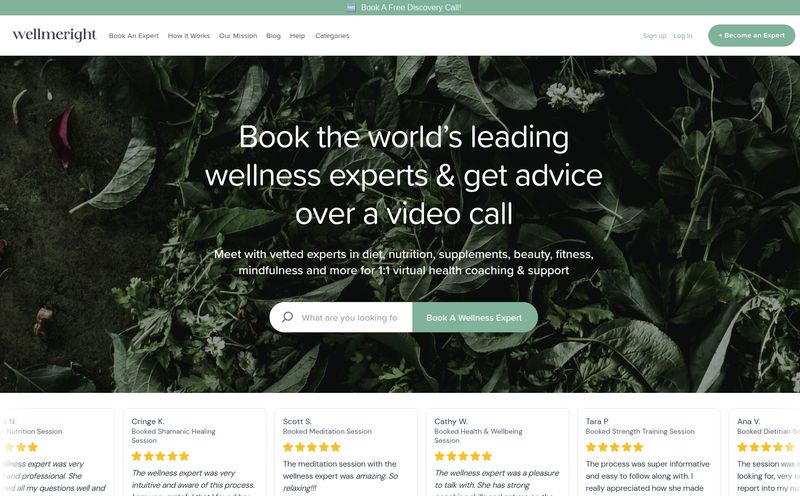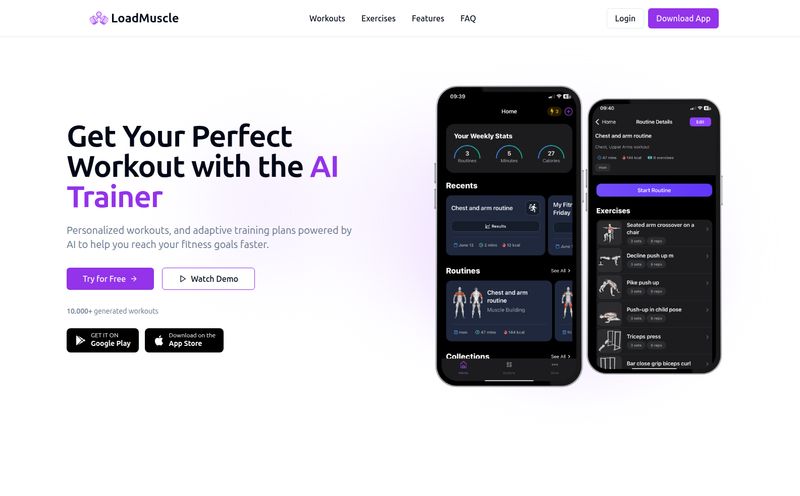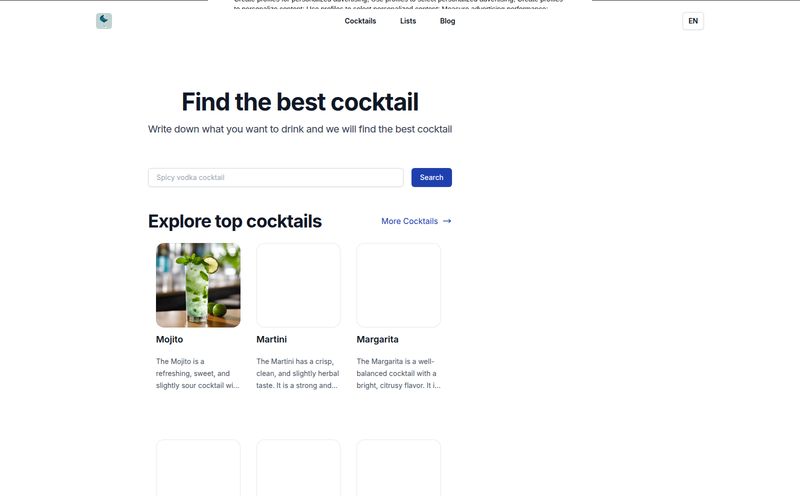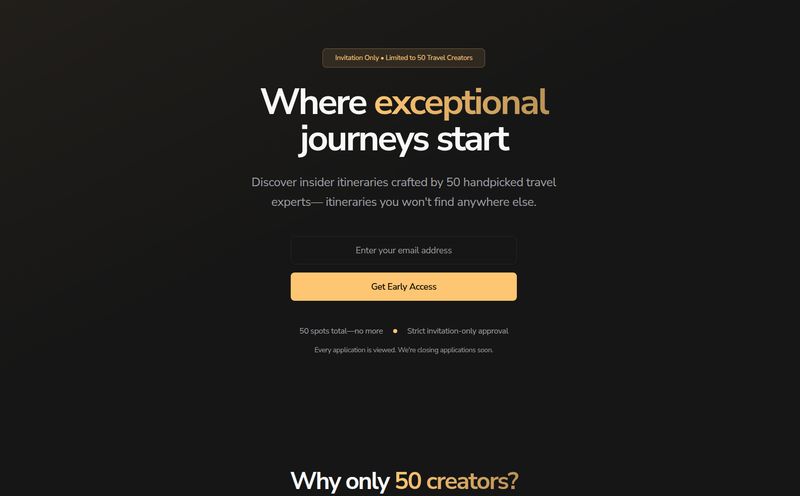Let’s have a little chat. You and me. If you’re a podcaster, you know the feeling. You pour your heart, soul, and a surprising amount of money into your show. You perfect your audio, line up great guests, and hit publish with a mix of terror and excitement. And then… silence. Getting your podcast in front of new ears can feel like shouting into the void. The so-called "podcast boom" has also created a discovery desert, where only the shows with massive marketing budgets seem to find the oasis.
I’ve been in the SEO and traffic generation game for years, and I've seen this pattern over and over. Great content constantly gets buried. So when a tool like PodRoll comes along, claiming to solve “podcasting’s biggest challenge,” my ears perk up. But as a professional skeptic (and blogger), I also have to ask: Is it for real, or just another shiny object?
So, What Exactly Is PodRoll Anyway?
In the simplest terms, PodRoll is an AI-powered recommendation engine for podcasts. Think of it like Netflix’s “Because you watched…” feature, but built directly for the audio world. It’s designed to help listeners find their next favorite show by hearing a recommendation for it on a podcast they already love.
Instead of relying on easily-gamed charts or hoping someone tells a friend about your show, PodRoll uses smart technology to place recommendations for your podcast inside other, relevant podcast feeds. It's a system of AI-driven feed drops, essentially. It works both ways, too. You can promote your show on other podcasts, and you can also monetize your own feed by allowing PodRoll to place relevant recommendations for your listeners. It's a clever, symbiotic ecosystem that, on paper, tackles both audience growth and revenue generation in one go.
The Great Wall of Podcast Discovery
Before we get into the nitty-gritty of PodRoll, lets be real about the problem it’s trying to solve. Discovery is a beast. For years, the primary ways to find new podcasts were through the Apple Podcasts or Spotify charts—which are notoriously hard to crack—or by simple word-of-mouth. This creates a feedback loop where popular shows get more popular, and indie creators struggle for air.
I’ve always felt that podcasting’s biggest strength—its decentralized, open nature via RSS—is also its biggest weakness for discovery. There’s no central algorithm, no YouTube-style homepage pushing new creators into the spotlight. You have to build your audience one listener at a time. It’s a grind. A tool that can intelligently bridge that gap and serve listeners relevant content right in the context of their listening app is, frankly, the holy grail for many creators.
How PodRoll Aims to Change the Game
PodRoll isn't just throwing ads around randomly. Its entire model is built on a few core pillars that seem pretty well thought out. As someone who has waded through countless half-baked marketing tools, the focus here is refreshing.
AI-Powered Matchmaking
This is the secret sauce. PodRoll’s AI digs into the content of podcasts to find shows that are genuinely a good fit for each other. So, if you have a podcast about minimalist home organization, it won’t get recommended on a true crime show. Instead, your show might be recommended to listeners of a podcast about sustainable living or personal finance. This contextual relevance is everything. It means the recommendations feel less like an interruption and more like a helpful suggestion from a friend. The goal is to reach the right audience, not just any audience.
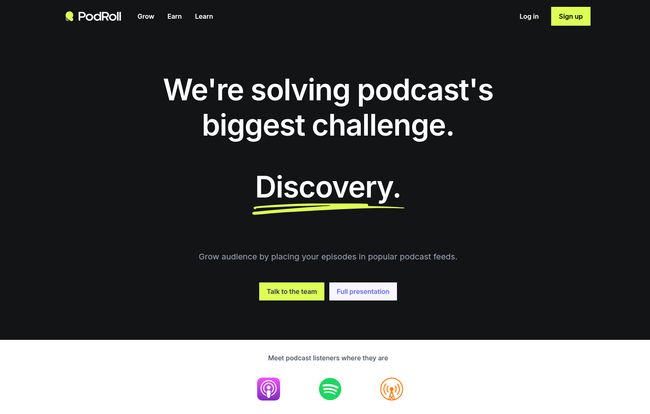
Visit PodRoll
A New and Interesting Revenue Stream
Monetization for podcasters is often a bumpy road. Sponsorships are great, but you typically need a big audience to land them. Patreon and listener donations work, but they can be a slow burn. PodRoll introduces a new path to monetize your podcast. By allowing other podcasts to be recommended to your audience, you open up an inventory slot that you can sell. It’s a way to generate revenue that doesn't rely on traditional ads and can complement your existing monetization strategy. I find this two-way street approach—grow and earn—to be its most compelling feature.
Keeping it Legit with IAB Compliance
Okay, this might sound a little technical, but it’s incredibly important. PodRoll is IAB Compliant. For the uninitiated, the Interactive Advertising Bureau (IAB) sets the industry standard for measuring digital ad metrics, including podcast downloads. Being IAB compliant means the download numbers PodRoll provides are certified to be accurate and trustworthy. Why does this matter? Because if you're paying to promote your show, you need to know you're getting real, verifiable downloads, not just bot clicks. And if you’re selling spots, advertisers need to trust your numbers. Its a mark of professionalism that serious podcasters should look for.
My Honest Take: The Good, The Bad, and The Maybe
Alright, no tool is perfect. Let's break it down based on my experience looking at platforms like this. Here’s what stands out to me, both good and bad.
What I Really Like
First off, the control. The website promises complete control over what content gets recommended on your show. This is huge. The last thing you want is for a show that clashes with your brand's values to be promoted to your hard-won audience. The ability to approve or deny recommendations is a non-negotiable feature, and they have it. I also love the promise of a "simple setup." Podcasters are often solo creators wearing a dozen hats; they dont have time for a complicated integration. PodRoll claims to work with your existing hosting platform, which lowers the barrier to entry significantly.
Some Points to Consider
Now for the reality check. The success of a platform like this hinges entirely on the quality of its AI. If the recommendations are off-base, listeners will just tune them out or, worse, get annoyed. There's also the simple fact that listeners can always hit the skip button. You're paying for placement, not guaranteed listeners. And finally, it requires integration. While they say it's simple, it's still another moving part you have to connect to your existing podcast host. It's not a standalone magic wand, but a tool that has to be woven into your workflow.
What’s the Damage? A Look at PodRoll's Pricing
This is the part of the review where I’d normally break down the pricing tiers. But, in a fun little twist, PodRoll’s pricing page currently leads to a 404 error. Whoops.
Now, this could be a temporary glitch, or it could be by design. In my experience, when a B2B service doesn't list its pricing publicly and instead pushes you to "Talk to the team" or "Get started," it usually means they operate on a custom or quote-based model. This makes sense for a service like this, as the cost might depend on the size of your show, the reach you're looking for, and other variables. It's not ideal for casual window shoppers, but it's a pretty standard practice in the ad-tech world. So for now, you'll have to reach out to them directly to get the numbers.
Is PodRoll Right For Your Podcast?
So, who is this for? If you're a brand new podcaster with ten listeners (hi, Mom!), this probably isn't your first step. Your focus should be on creating a backlog of fantastic content. But if you're an established podcaster with a consistent listenership and you've hit a growth plateau, PodRoll is a very interesting proposition. It's for the creator who is ready to move from hobbyist to professional, who understands the value of targeted marketing and is looking for a smart way to scale their audience and open new revenue doors.
Frequently Asked Questions about PodRoll
- How does PodRoll's AI actually work?
- While they don't reveal their exact algorithm, it's based on contextual analysis. The AI listens to and analyzes podcast content to identify themes, topics, and tone, then matches shows that have a similar or complementary audience profile.
- Is PodRoll difficult to set up?
- According to their website, the setup is simple and can be done in minutes. It's designed to integrate with your current podcast hosting platform, not replace it, which should streamline the process.
- Can I control which podcasts are recommended on my show?
- Yes. PodRoll emphasizes that you have "complete control" over approved content. You can review and approve any podcast recommendation before it ever goes live in your feed, ensuring brand safety.
- How does PodRoll help with revenue?
- It provides a new piece of ad inventory. You can sell recommendation slots in your podcast feed to other podcasters who want to reach your audience. PodRoll facilitates this marketplace.
- Is PodRoll a replacement for my podcast host like Libsyn or Buzzsprout?
- No, it's not a hosting platform. It's a marketing and monetization tool that integrates with your existing host to manage the promotional feed drops.
- What does IAB Compliant mean and why does it matter?
- It means their download and listening metrics are certified by the Interactive Advertising Bureau to be accurate and adhere to industry standards. This is crucial for building trust with advertisers and marketing partners.
Final Thoughts
Look, the struggle for podcast growth is real, and it’s not going away. The platforms that succeed will be the ones that offer smart, targeted solutions instead of just more noise. PodRoll appears to be a serious contender. It’s tackling the right problem with the right technology, and the focus on IAB compliance and user control shows a maturity that I appreciate.
It’s not a magic bullet—you still need to create a show worth listening to. But as a tool for scaling what already works, it could be a powerful ally in the fight against podcast obscurity. If you’re stuck on a growth plateau, it’s definitely worth a conversation with their team.
